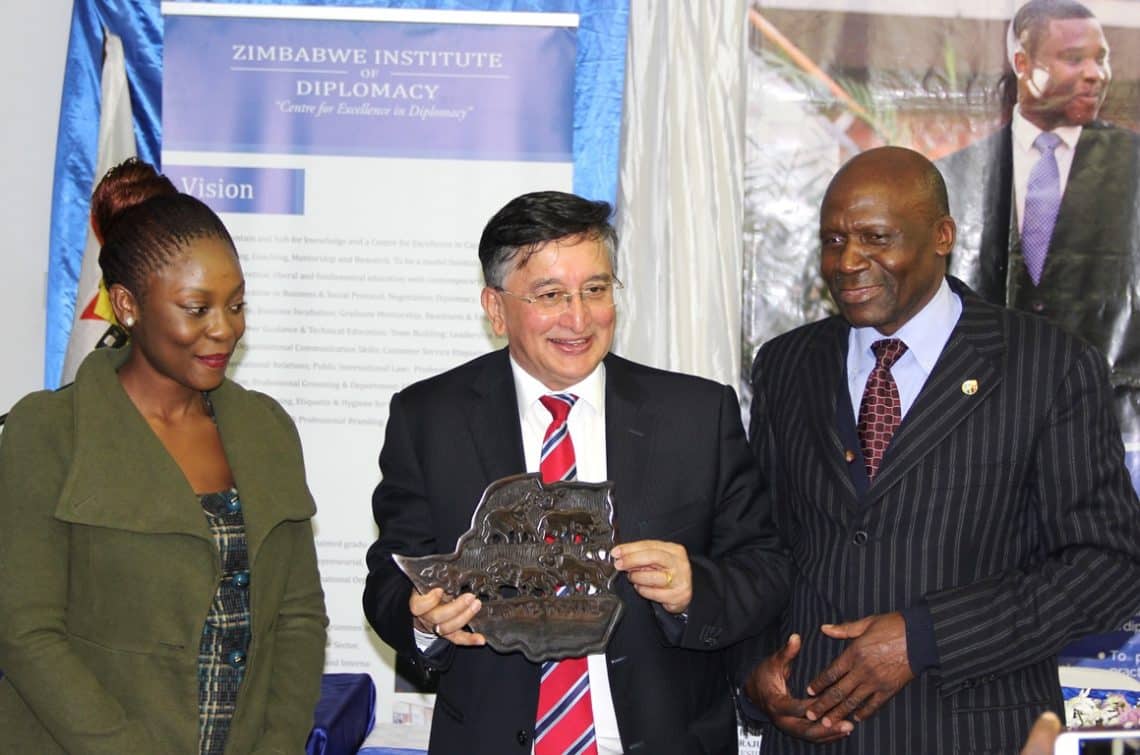By Byron Mutingwende
The United Nations in Zimbabwe has said growing the economy is critical in order to achieve the Sustainable Development Goals (SDGs).
Bishow Parajuli, the UN Resident Coordinator for Zimbabwe said while the role of development assistance is critical and necessary, it is not sufficient for the achievement of the SDGs. He made the remarks in his lecture to students of the Zimbabwe Institute of Democracy in Harare on Thursday 5 July 2018.
“There is strong need for the private sector and business to play a significant role. SDGs provide a new development path to the challenges of our time and future generations and identify business opportunities. They offer economic incentives that enhance corporate sustainability, provide policy directions on global, regional and national levels so that firms could realign their own priorities.
“They have effects of stabilising societies that could have spillover effects on businesses and helps strengthen synergy among partners for a common goal.
Zimbabwe’s economy remains stagnant with hardly any significant development activity taking place. Firms are struggling to stay afloat. Poverty and hunger remains a critical development challenge with 76% of the rural population living below the poverty line. While progress has been made in many social fronts including in health and education sectors, their sustainability is a concern.
The threats of climate change have emerged and we see dry weather and drought spells more frequently and at time flash floods. Environmental damage is becoming a serious concern in Zimbabwe,” Parajuli said.
SDGs are 17 goals with 169 targets and 204 indicators that aim to end poverty, hunger, inequality, and promote justice, peace, gender equality, good health, quality education, jobs, innovation, environmental protection and strong partnership.
The SDGs are comprehensive; they are interlinked-one leading to another and complex. On top of these are the resulting wide development deficits, not only in Zimbabwe but also in many other countries. This means challenges of achieving SDGs are monumental, so does equally the opportunities to achieve them.
Government is the lead in the implementation and achievement of these goals, but Government alone can’t do so. Fostering multi-stakeholder engagement and partnership is critical to achieve these goals – new national, regional and international partnership is key to success.
The UN’s role in a nutshell is advisory, technical and provides financial support. The 2016-2020 Zimbabwe United Nations Development Assistance Frameworks (ZUNDAF) has guided implementation of SDGs – the UN Support to Zimbabwe on the SDGs implementation. The ZUNDAF focuses on six national priority result areas: Social Services and Protection; Food and Nutrition Security; Poverty Reduction and Value Addition; HIV and AIDS; Gender Equality; Good Governance and Public Administration. Of the US$1. 6 billion planned to be mobilised in these priority areas, as at 31 March 2018, the UN has disbursed US$931 million accounting close to 60% of the total resources. This is ahead of what has been planned.






